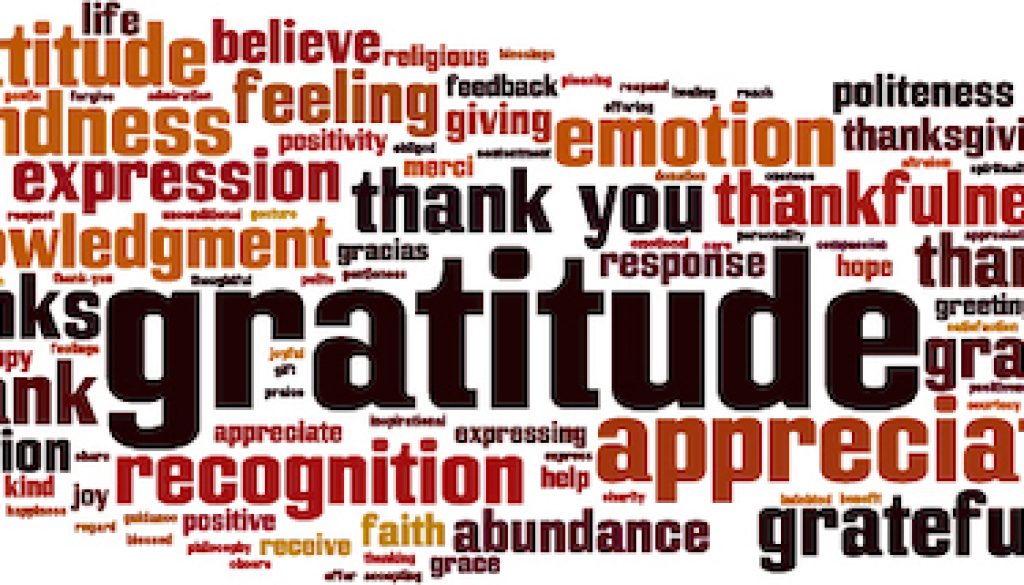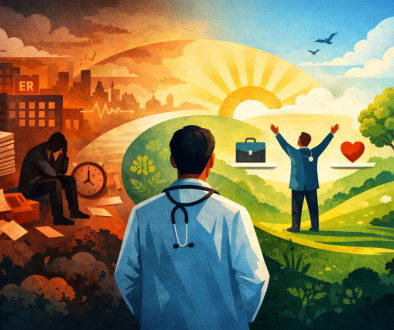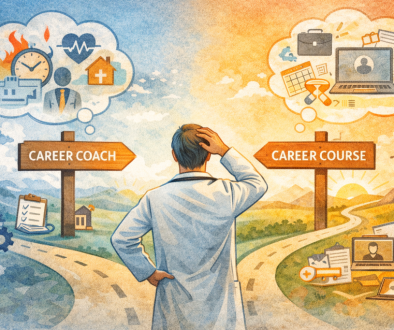Four Ways to Practice Gratitude in Medicine
Does Practicing Gratitude in Medicine help?
Physicians work in an increasingly challenging environment. Consider the following recent headlines:
- “The tripledemic has brought back peak COVID fears and social tension.”
- “Congressional budget will cut Medicare reimbursement for physicians.”
- “Report: Hospitals face worst year financially since the start of the COVID-19 pandemic, jeopardizing access to patient care.”
- “The spiraling problem of doctor shortages and burnout”
Each headline describes a complex problem that directly impacts physicians and is beyond our control. Despite this, we are frequently tasked with solving these issues. It is no wonder we are exhausted and burned out. Physician leadership can address these issues in the long term, but what can we do in the short term to bolster our resilience so we can address these challenges?
One solution that may surprise you is practicing Gratitude in Medicine.
When physicians are asked about practicing gratitude in medicine, they commonly respond with a variation of the following statement. “ I wish my patients said thank you more often.” Patients benefit from the care we provide, and it feels good when that care is acknowledged with a simple “Thank you.” We also benefit, however, by providing care. We are witnesses to our patients’ lives. That is a gift. The practice of gratitude recognizes the gifts we receive, not those we give, and acknowledges the sources of those gifts. While it might seem hokey, taking a moment to be thankful for what we receive while practicing medicine has surprising benefits. Practice gratitude to develop resilience, bolster your mood, and change your perspective!
Curious? Incorporate one of the following gratitude exercises into your daily routine!
1. Say thank you
When was the last time you thanked a team member for their efforts? Recognizing the contributions of those around you can boost your mood, build trust, and solidify team bonds. It doesn’t matter how you express gratitude. A verbal thank you, email, or a cup of coffee all have the same impact. However, expressing gratitude is most effective when other team members witness it. It turns out those who see someone being thanked also experience a boost in their mood and resilience!
2. Start a Gratitude Journal
Psychologists have studied the impact of gratitude journals extensively. Regularly writing down the things you are grateful for has been associated with better sleep, decreased symptoms of chronic illness, and greater happiness. Not a fan of writing or unsure if you have the time? A brief, weekly entry is more effective than keeping a daily journal. Why? Our minds adapt quickly and can become numb to the regular sources of good in our lives. As a result, journaling is most effective when done once or twice a week, focusing on the out-of-the-ordinary good things that happened during that time.
3. Count Your Blessings
Several years ago, my family moved, and I was suddenly within walking distance of work. What started as a convenient chance to stretch my legs and breathe fresh air turned into a stressful walk. As soon as I left one location for the other, I focused on the tasks I needed to do at my destination. I arrived stressed, anxious, and angry. I discussed this pattern with a coach who recommended I look for 2-3 things to be grateful for during my walk. It worked!
If you have trouble remaining in the present, incorporate this exercise into your daily routine at the start and end of your work day. Take a moment to look at your surroundings and find something you are thankful for. The simple perspective shift can keep you in the present.
4. Pause for a Moment
My Apple Watch reminds me regularly to “ pause for a minute” and focus on my breath. This gratitude exercise is similar in concept. Find a quiet spot, close your eyes, and think of someone you are thankful for. Imagine the gratitude you feel as a beam of light that connects the two of you. Keep the exercise short, less than 2 minutes.
Will one of the above gratitude in medicine exercises fix our broken healthcare system? Unfortunately, no. Mindfulness exercises can, however, boost your mental health and enhance your resilience. That simple change in perspective may allow you to come up with new solutions to our complex problems. Contact me or schedule a free consult to explore additional gratitude exercises and learn about my coaching program.





